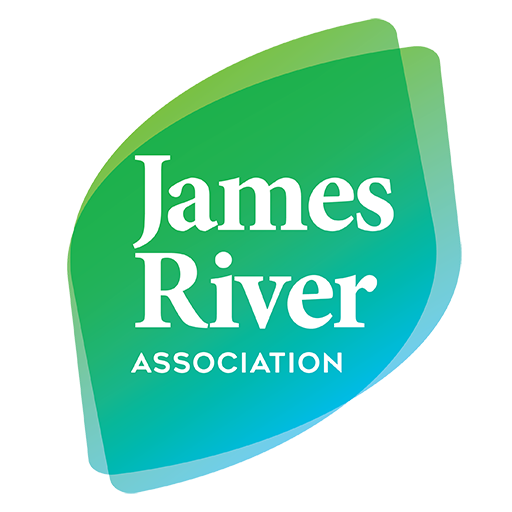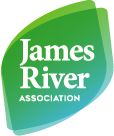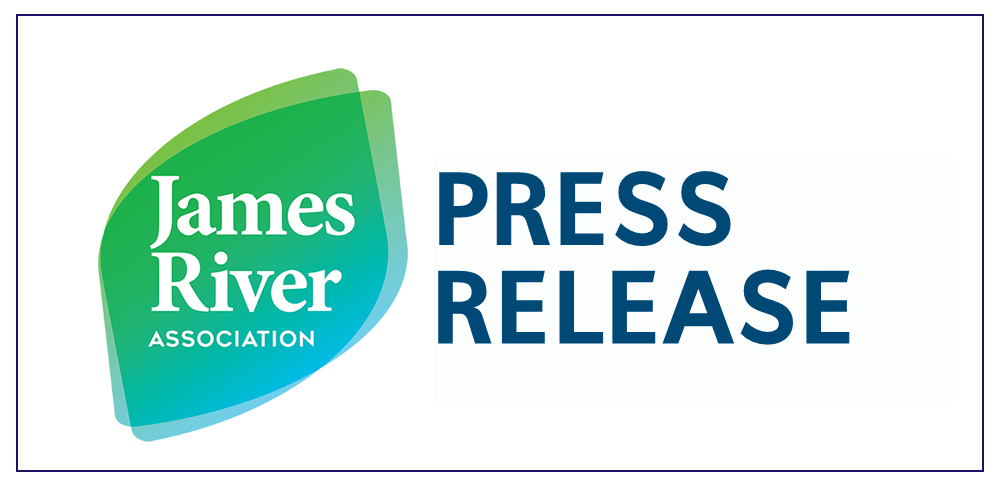PRESS RELEASE
FOR IMMEDIATE RELEASE:
Monday, November 9, 2020
CONTACT:
Marketing & Communications Manager
James River Association
(e) ehillert@thejamesriver.org
(c) 608.239.2644
Partnership Aims to Bring More Freshwater Mussels back to the James River
On Friday, October 23, the James River Association, the U.S. Fish and Wildlife Service, and the Department of Wildlife Resources released over 5,500 freshwater mussels into the James River in downtown Richmond. The conservation partners teamed up to help restore populations of freshwater mussels in their native James River habitat where each mussel will filter between 10 and 20 gallons of water per day, helping to improve water quality by removing algae, bacteria and other small particles.
“Freshwater mussels are essential members of the ecosystem providing cleaner water, keeping sediment in place, and providing food and habitat for other organisms,” says Erin Reilly, Staff Scientist for the James River Association.
Two species – the Alewife Floater and Yellow Lampmussel – were carefully placed on the river bottom by divers. Mussels were tagged with tiny markers called pit tags that are the size of a grain of rice, which will allow scientists to find these mussels in future years and collect data on their growth and survival.
Once prevalent in the James River, today freshwater mussels are imperiled due to pollution, dams and loss of suitable habitat. Virginia is home to 81 freshwater mussel species, 41 of which are considered endangered or threatened by the state.
“Virginia has been propagating and releasing freshwater mussels for over two decades, with most of the conservation and restoration efforts in watersheds like the Clinch River in southwest Virginia and the Nottoway River in southeast Virginia. With the positive results we have seen in those locations, we now hope to bring the same to the James River,” said Virginia Department of Wildlife Resources Malacologist Brian Watson.
Plans to continue releasing mussels through early November in the Upper and Middle James River, including areas in Lynchburg and Turkey Island Creek, are underway.
Funding to support the work of this partnership and the propagation of freshwater mussels is being provided by the Good Shepherd Foundation.
To learn more about the importance of mussels in our waterways, visit https://www.fws.gov/harrisonlake/mussels.html.
To learn more about JRA’s work across the watershed, please visit https://thejamesriver.org/programs.

ABOUT THE JAMES RIVER ASSOCIATION: The James River Association is a member-supported nonprofit organization founded in 1976 to serve as a guardian and voice for the James River. Throughout the James River’s 10,000-square mile watershed, the James River Association works toward its vision of a fully healthy James River supporting thriving communities. The James River Association believes that “when you change the James, the James changes you”. With offices in Lynchburg, Richmond, Williamsburg, and Scottsville, the James River Association is committed to protecting the James River and connecting people to it. For more information visit www.thejamesriver.org.

